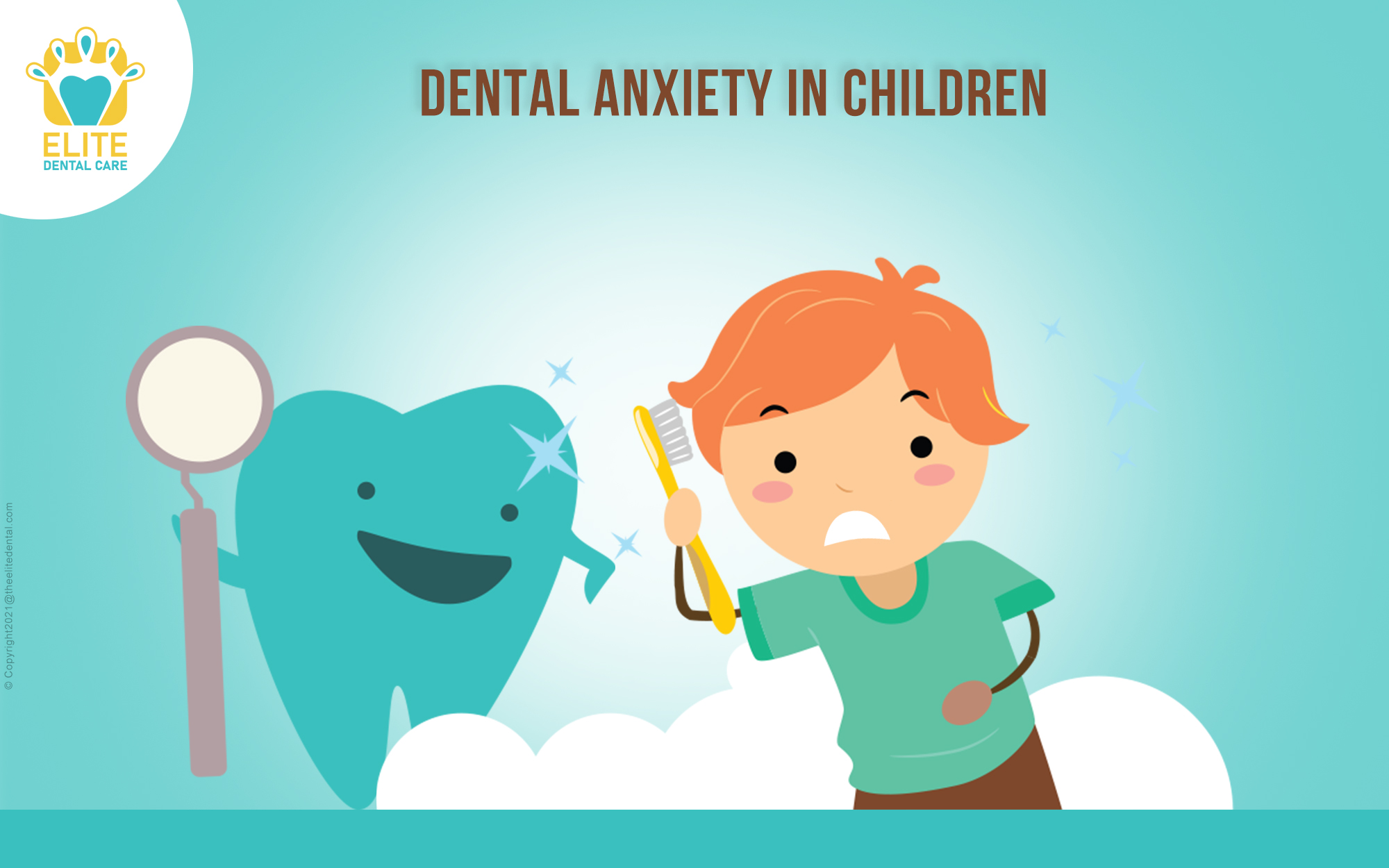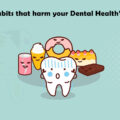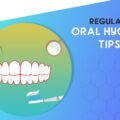
denturesflossinghygiene tipsoral healthRoot Canal TreatmentTeeth Whitening
edental
27 July 2022
Dental Anxiety in Children
According to studies, 10% of youngsters and young adults have a significant dental phobia. When going to the dentist, a youngster who has a minor phobia could feel anxious, agitated, or show some signs of stress. In this article, we shall talk about the dental anxiety in children that is practically experienced worldwide.
What is Dental Anxiety?
In children, dental anxiety or fear refers to tension, anxiety, or terror related to a dental environment. It is a significant challenge in pediatric dentistry practice and affects a sizeable fraction of kids and teenagers. putting off or avoiding dental treatment due to dental phobia. Dental anxiety can be brought on by things like drills, needles, or the dental office environment in general.
What are the symptoms of dental Anxiety?
Before appointments, those who have dental anxiety may suffer upsetting symptoms.
As an illustration:
- Low blood pressure.
- The experience of having your heart skip or add an extra beat. It may feel like your heart is pounding, throbbing, or fluttering.
- Panic disorders.
- Hostile conduct.
- Sobbing, collapsing, and drenching in perspiration.
- Withdrawal, or masking worry with humor or hostility.
- Sweating despite a cold room temperature or flushed cheeks.
- Anxiety or difficulty falling asleep the night before a dental appointment.
- Experiencing emotional outbursts before, during, or following a dental appointment.
Almost any youngster can experience dental anxiety. It can have its roots in their past traumas or simply in their temperament and anxiety levels at birth. Even though some people find going to the dentist to be challenging, putting off dental care can cause a lot more issues in the long run. These may consist of unnecessary tooth loss, suffering, or infection.
What causes Dental Anxiety in Children?
In most situations, children who have had unpleasant dental experiences can get over their fear if the matter is handled properly and they are supported and cared for during subsequent dental visits.
- A traumatic medical procedure or other encounter.
- Dental mistreatment or head and neck injuries.
- Accessing the mouth is an infringement on personal space because it is a private place.
- The fear of being trapped or losing control in circumstances from which you believe you cannot escape.
- Trust problems
- Aversion to enclosed or operating rooms.
- Negligent oral hygiene or further dental work.
Adults who experience dental anxiety frequently experience anxiety for the rest of their lives. Many fearful dental patients are fortunate to find a dentist who understands their predicament, making it easier for them to deal with going to the dentist.
Why are children susceptible to dental anxiety?
Dental anxiety can affect anyone, but children are particularly susceptible. Most people who experience significant levels of anxiety can trace their symptoms back to a young age, and parents who have dental anxiety are very likely to pass this concern on to their children.
How to control dental Anxiety or phobia?
Dental phobia or anxiety can be managed in a variety of ways. If you feel dental anxiety, it’s crucial to let the dentist know.
Following are some of the methods to control dental Anxiety:
- Meditation.
- Using deep breathing to relax oneself.
- Distracting the patient by having them utilize certain devices or listen to music.
- gradual skeletal relaxation
- Covering up with a cozy blanket.
- You can alter your attitudes, beliefs, and behaviors with the aid of hypnosis. Many different medical and mental disorders, such as anxiety and phobia, can be helped by it.
- Ask your dentist about the best sedation options.
- Analgesia.
- Ask questions – Don’t be shy about asking the dentist to walk you through a process and explain what they’re doing.
Dental anxiety is rather typical. Numerous factors may affect a child’s tolerance for pain from needles and dental work. You must make room in your head for the dental procedures you are receiving.
Why Is Overcoming Dental Anxiety Important?
Avoiding the dentist can seriously harm both your physical and mental health. While you are young and healthy, your teeth may be lovely, but as you age, problems may arise that give you pain and discomfort. With the aid of laser cavity detection, dentists can spot concerns like cavities early on before they become significant problems and can subsequently treat you for preventative tooth decay. This ensures that little problems won’t develop into major ones that could give you discomfort, difficulty eating, or even tooth loss.
Both children and adults can have dental anxiety, but you can manage it and you should still go to your appointments on time. Consult your dentist to go over any relaxation methods that might work for you. You could find that relaxing activities like watching TV, going with a friend, or even unconventional treatments like hypnosis can help you deal with your anxiety and get through visits.




